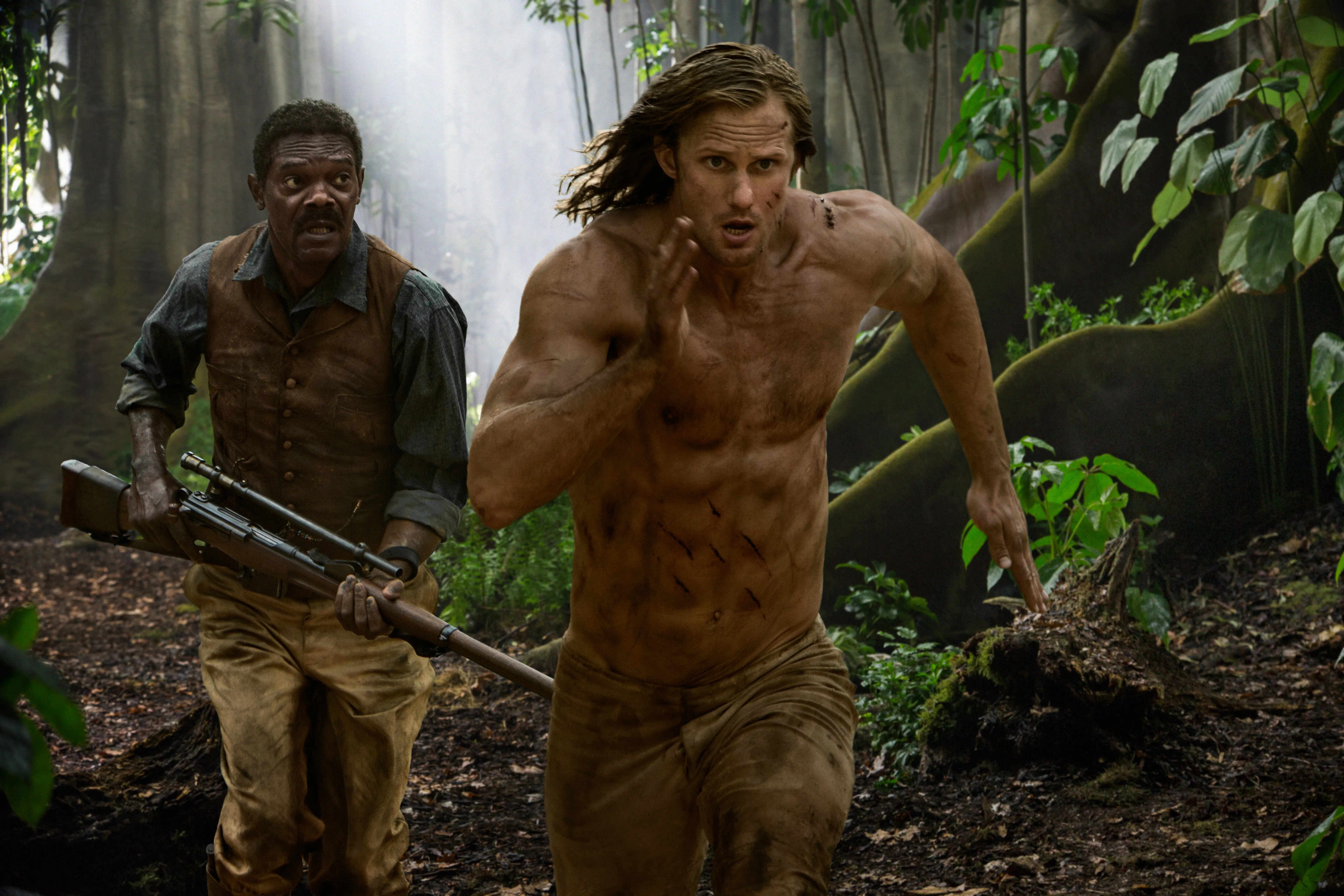Tarzan yells. Tarzan swings. Tarzan sprints. We get it. But what hasn’t Tarzan done? Oh, yes — Tarzan has yet to fail. Don’t worry, though: “The Legend of Tarzan” makes no mistake in fulfilling what’s already been done before, while managing to butcher every modern aspect introduced. Director David Yates puts a new spin on the classic story, but it’s never enough to save the movie in the same way Tarzan always manages to save his beloved Jane.
Tarzan (Alexander Skarsgård) — who now goes by the name John Clayton III, Lord Greystoke — lives a comfortable life in Victorian England. He no longer desires any association with the wild nature of his upbringing, but an invitation from the Belgian monarchy requesting his visit to Congo forces him to confront his past as a feral-child-turned-king-of-the-jungle. Accompanied by his wife Jane Porter (Margot Robbie) and African-American diplomat George Washington Williams (Samuel L. Jackson), Clayton investigates the enslavement of African natives orchestrated by King Leopold II’s trusted captain, Léon Rom (Christoph Waltz). In need of finances, Rom settles a deal with an African tribe that requires the capture of Tarzan. Rom eventually kidnaps Jane in an attempt to draw out Tarzan, seemingly setting the stage for the typical plotline in which the hero swoops in to save his lady. However, Robbie proves that her character isn’t the Jane who simply serves as a damsel in distress. She’s the Jane with a strong sense of independence and her own capabilities. But when the main driving force of the plot is Tarzan’s desire to save Jane, the film struggles to stray from strict, traditional gender roles.
Touches of modern history are also present throughout the film, with Jackson and Waltz playing nonfictional characters alongside references to multiple American wars, forced labor and genocide. The attention to historical detail strives to elevate the realism of the tale in spite of Tarzan’s seemingly superhuman abilities. The addition of Jackson’s character, a Civil War veteran, is an attempt to make a greater impact by weaving various historical connections. George Washington Williams mentions his Civil War background (more than once) and alludes to the U.S.’s exploitation of the Native Americans. The latter subject rounds off nicely with Williams saying that the Americans are no better than the Belgians; but other than this instance, Williams’s historical allusions feel forced. Despite the choppy integration of historical context, “Legend of Tarzan” at least dampens the racism inherent in many earlier renditions of the Tarzan story. It showcases Tarzan’s alliance with a Congolese tribe as they fight against Belgium’s colonial rule of Congo, thus avoiding the “white savior” trope.
Jackson provides comedic value to lighten the rather serious atmosphere of “Legend of Tarzan” as his character reacts amusingly to the flora and fauna of the Congo. Jackson’s comic relief is more than enough to give the audience a good chuckle or two. However, his attempts at comedy fall short and seem out of place during crucial moments in Clayton’s transition from London aristocrat to wild jungle-boy.
What the film lacks in plot development is made up for in its visual effects. Despite being shot in England, “Tarzan’s” vivid scenery (shot spectacularly by Henry Branham) makes one feel like he’s actually in Africa. Braham skillfully mends exciting action shots featuring Tarzan running through the jungle into slower scenes of the film. But regardless of the gorgeous views of the Congo river and rainforest, even digital editing fails to bring the computer generated creatures to life (looking at you, elephants and apes). And certain scenes are botched because the filmmakers don’t even try to disguise the fact that they’re using artificial sets and props. “Hmm, a slight blur effect will certainly add some dimension!” they seem to be saying. Instead, it jolts the viewer out of the visual immersion. Instead of seeing the green of Congo trees, we see the green of Hollywood bucks.
Even though “The Legend of Tarzan” aims to show a fresh perspective of the Tarzan story, its predictable scenarios are anything but. The film seems like a mushpot of a history lesson, a feminist message and an awkward comedy. But these elements never come together (it is an action movie, after all), and even the likes of director Yates and the well-applauded Jackson cannot save the trainwreck that is “The Legend of Tarzan.” With such an off-balance story, a jumble of stale acting and a sometimes less-than-authentic appearance, the only real star of the film is Skarsgård’s magnificent six (or more) pack.
Contact Ashley Chang at ashleychang47 ‘at’ gmail.com and Ashley Phuong at ashleyaphuong ‘at’ gmail.com.
